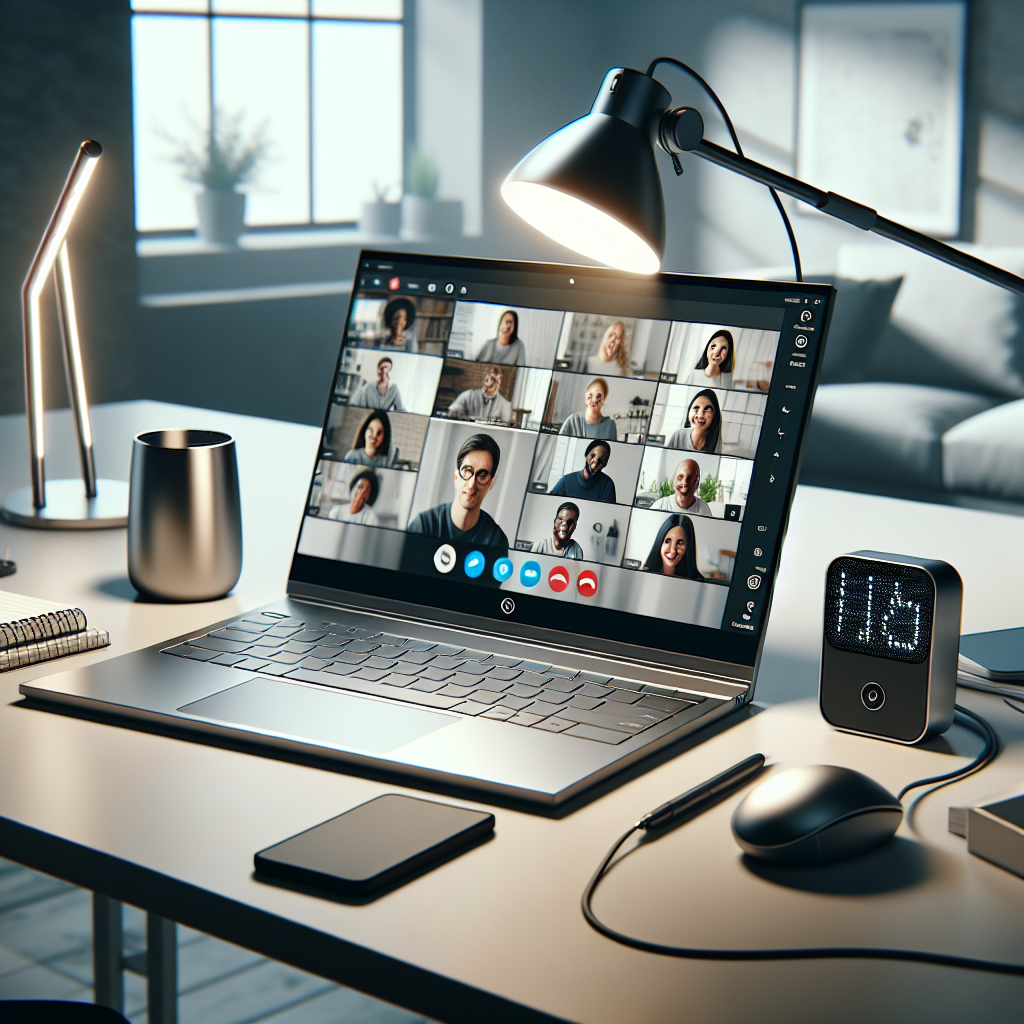The rise of remote work and the increasing need for virtual communication have made video conferencing an essential part of our daily lives. Whether you’re a professional attending business meetings or a student participating in online classes, having the right laptop can make a significant difference in your remote collaboration experience. But what makes a laptop ideal for video conferencing and remote collaboration? This article explores the key features and specifications that you should consider when choosing the perfect laptop for your needs.
Key Features of an Ideal Laptop for Video Conferencing
Before diving into the specifics, it’s essential to highlight the critical components that make a laptop suitable for video conferencing and remote collaboration:
- High-Quality Webcam
- Powerful Processor
- Sufficient RAM
- Excellent Audio Quality
- Reliable Internet Connectivity
- Long Battery Life
- Portability and Build Quality
Webcam Quality
The webcam is arguably the most crucial feature for video conferencing. A high-resolution webcam ensures that you appear clear and professional on calls. Look for webcams with at least 720p HD resolution. However, 1080p Full HD cameras provide sharper and more detailed video quality, which can be beneficial for important presentations and meetings.
| Resolution | Quality |
|---|---|
| 720p HD | Good |
| 1080p Full HD | Better |
Processor Performance
A powerful processor ensures smooth multitasking and efficient handling of video conferencing software like Zoom, Microsoft Teams, and Google Meet. Aim for laptops with Intel Core i5 or AMD Ryzen 5 processors or higher. These processors provide the necessary power to run video conferencing applications without lag. Ultra-book processors are also a good choice for those seeking a balance between performance and energy efficiency.
RAM
Having sufficient RAM is critical for seamless video conferencing. A minimum of 8GB RAM is recommended to ensure smooth performance, especially if you plan to run multiple applications simultaneously. For heavier multitasking and future-proofing, 16GB RAM is ideal.
Audio Quality
Clear audio is as important as video quality in video conferencing. Integrated microphones and speakers of good quality can significantly enhance your communication experience. Look for laptops with noise-canceling microphones and high-fidelity speakers. Some laptops also offer advanced audio features like Dolby Audio or AMD TrueAudio for better sound quality.
Internet Connectivity
Reliable internet connectivity is non-negotiable for video conferencing. Laptops equipped with the latest Wi-Fi 6 technology offer faster and more stable connections, which are essential for uninterrupted video calls. Additionally, having an Ethernet port can be beneficial for a more stable wired connection, especially in environments with inconsistent Wi-Fi.
Battery Life
When participating in prolonged video calls or working remotely, long battery life becomes crucial. Look for laptops that offer at least 8-10 hours of battery life on a single charge. This ensures you can work effectively without constantly needing to recharge your device.
Portability and Build Quality
The design and build quality of the laptop also play an essential role, especially for remote workers who may need to carry their laptop around. Lightweight and compact laptops are easier to transport, while a sturdy build ensures durability. Laptops with a robust design and high-quality materials are preferable for long-term use.
Additional Features to Consider
Beyond the fundamental specifications, here are some additional features that can enhance your video conferencing and remote collaboration experience:
- Backlit Keyboard: Essential for working in low-light conditions.
- Touchscreen: Can enhance usability and productivity.
- Multiple Connectivity Ports: USB-C, USB-A, HDMI, and SD card reader for versatile connectivity.
- Biometric Security: Fingerprint scanner or facial recognition for secure login.
- Pre-Installed Software: Useful productivity and video conferencing software pre-installed.
Top Laptop Recommendations for Video Conferencing
Dell XPS 13
The Dell XPS 13 is renowned for its stunning InfinityEdge display, powerful performance, and elegant design. It features a 720p webcam, Intel Core i5 or i7 processors, up to 16GB RAM, and Wi-Fi 6 connectivity, making it a top choice for video conferencing and remote collaboration.
Apple MacBook Air
The MacBook Air, with its M1 chip, offers impressive performance, long battery life, and a Retina display. It comes with a 720p FaceTime HD camera and excellent audio quality, making it an excellent option for seamless video calls.
HP Spectre x360
HP’s Spectre x360 is a versatile 2-in-1 laptop with a 1080p webcam, Intel Core i7 processor, and up to 16GB RAM. Its long battery life and premium build quality make it an excellent device for remote work and video conferencing.
Lenovo ThinkPad X1 Carbon
The ThinkPad X1 Carbon is known for its robust build, reliable performance, and extensive connectivity options. It features a 720p or optional 1080p webcam, Intel Core i5 or i7 processors, and advanced security features, making it ideal for business professionals.
Microsoft Surface Laptop 4
The Surface Laptop 4 offers a perfect balance of performance and portability with its sleek design, 720p HD webcam, and exceptional keyboard and trackpad. It is powered by Intel or AMD processors and supports fast Wi-Fi 6 connectivity.
Conclusion
Choosing the right laptop for video conferencing and remote collaboration involves considering various factors including webcam quality, processor performance, RAM, audio quality, internet connectivity, battery life, and build quality. By prioritizing these features, you can ensure a smooth and efficient virtual communication experience, making remote work and online learning more productive and enjoyable.

